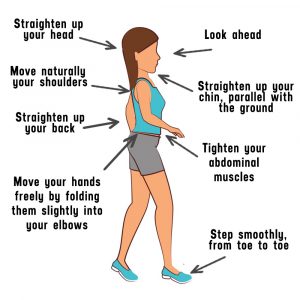Losing weight does not have to mean an expensive gym membership or a personal trainer. Walking is a cheap, accessible and simple way to do so. Not only is walking a good weight loss method, it has many health benefits, including improved liver health. Read our article to find out how walking can help you lose weight and improve your health.
What’s in this article
- Health benefits of walking
- How often should I exercise?
- Safe calorie deficit
- How does walking help you lose weight?
Health benefits of walking
Regular exercise like going for a walk can offer many health benefits, including preventing health conditions and diseases, like Fatty Liver Disease, reducing high blood pressure, boosting your metabolism, increasing your energy levels, improving your mood and helping with weight loss. In particular, walking can improve your posture, balance and coordination. The faster, farther and more often you walk, the more health benefits you will notice. The New England Journal of Medicine even suggests that walking can lead to a longer life span. To find out how healthy your lifestyle is for your liver, you can answer 12 simple multiple-choice questions to get your Liver Score results.
How often should I exercise?
The Department of Health and Human Services recommends 150 minutes of moderate intensity aerobic exercise each week, which breaks down to 30 minutes each day. If you are up for a challenge, try 75 minutes of vigorous-intensity aerobic exercise each week. Aerobic or “cardio” exercise increases your breathing and heart rate to deliver oxygen to working muscles. Types of aerobic exercises include: swimming, hiking, kickboxing, dancing and walking.
Safe calorie deficit
To lose weight, you need to create a calorie deficit by eating fewer calories, exercising, or both. A person who weighs 130 pounds can burn about 120 to 140 calories walking at a moderate pace per hour, while a person who weighs 200 pounds can burn about 180 to 200 calories per hour. According to the Center for Disease Control and Prevention, to lose one to two pounds per week (a healthy weight loss rate), requires a 500 to 1000 calorie deficit per day, part of which can be accomplished through walking.
How does walking help you lose weight?
To lose weight, it is recommended to accumulate between 10,000 to 15,000 steps per day, which equals between five and seven and a half miles. Unlike most exercises, which can harm your body if you increase intensity too quickly, walking allows you to increase your step count at any point. If you do not have enough time to complete this distance in one go, three 20-minute-long walks each day will get you there. Shorter walks after each meal may even improve blood sugar control, which can prevent unhealthy food cravings.
It is important to challenge yourself, even with basic workouts like walking. Walking uphill helps to build muscle, which boosts your metabolism. Swing your arms and alternate between walking at a normal pace and power walking for one minute to increase your heart rate and burn more calories. For a change of pace, add bodyweight exercises to your walk, like squats and triceps dips, which can also increase your heart rate and help build muscle.
While walking seems simple, proper posture and technique can make a huge difference when it comes to losing weight and overall health. Walk in long strides, relax your neck and shoulders, do not tense your stomach, bend and relax your arms, and keep your fists loose. A better walking technique can increase your pace and step count. To read a more detailed explanation of proper walking posture follow the guide pictured below.

Image from StanimirMihov.com
Find out about the vitamins and minerals that make up an Amsety Bar!
References
mayoclinic.org
cdc.gov
cdf.nejm.org
verywell.com
cdc.gov
womenshealthmag.com
fitnessforweightloss.com
dailymail.co.uk

 (442) 244-5115
(442) 244-5115















